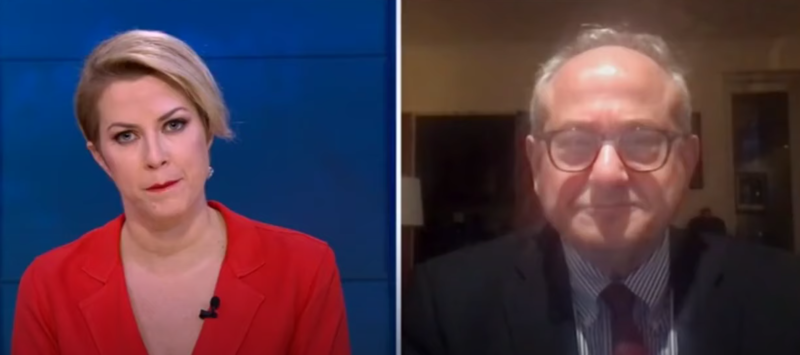The Washington Post & the OAS Secretary General
The OAS needs to be reformed, but the changes need to emerge from accurate analysis of the problems confronting both Latin America and the OAS.
Michael Shifter, president of the Inter-American Dialogue, talked with CGTN's Sally Ayhan about the motivation behind the recall referendum vote in Mexico and President López Obrador's projected response.
"I don't think we have a good sense of that [the motivations behind the Mexico referendum vote.] Certainly, the expectations were very low. I think what President López Obrador wants is for the people who are committed to him and his party to come out in a show of support and solidarity, and he seeks to mobilize his base. But, even for those who support López Obrador, it's unclear whether they'll come out and vote because they know that he's going to remain in office and complete his term in 2024. I think we should expect a pretty low turnout, perhaps not reaching the 40 percent threshold as the report indicated to make it binding.”
Question (Q): As you mentioned, López Obrador has a history of using referendums as a tool to energize his working-class base, but this will be the first time he's turned the [referendum] question on himself. Tell us more about why the President proposed this referendum.
Response (R): “First of all, he's a proponent of direct democracy. I think he has ruled without the need for intermediate institutions such as the judiciary and the electoral authorities. He likes to have a direct connection to and direct support from the people. That's his concept of democracy. These recall referendums are very much consistent with that. He wanted this in case we have another president that is unpopular. Then, this is a mechanism that can be used; if it's managed correctly, I think it has some validity."
"But, in this context, it really doesn't make any sense because the opposition doesn't doubt that López Obrador is very popular. As your report indicated, he has around 60 percent support in the country. This is turning the whole concept on its head. He's taking advantage of it and will take advantage of it whether he wins over 40 percent or whether he falls short. He'll probably fall short. He’ll probably blame the electoral authorities for not doing their part in order to get out the vote or in order to devote resources to this."
"Either way, I think he's going to do this to shore up his support and to show the country that he's still very popular, that he's legitimate. This will give him some energy for the next two years of his term and also prepare the ground for the 2024 elections. As your report indicated, he wants his party to continue going forward. He has a long-term vision, and this feeds into that political project.”
(Q): So are you saying that in either way, it's a kind of win-win that if no one shows up or if even he loses the vote, it would invite attacks on the electoral system, something that he's always wanted to reform?
(R): “Yes, I think that he [López Obrador] has been very effective in blaming others if something doesn't reflect well on him or if he doesn't succeed in what he's pursuing. I would guess that if he doesn't get the 40 percent of his very, very low turnout, he's not going to say, 'people don't like me and people didn't come out to vote.' It's hard to imagine that he's going to blame the electoral authority for not fulfilling its own obligation and responsibility. He’ll say, 'the institutions are against me.' This is what he's done with the press and this is what he's done with other institutions that have challenged him and questioned him. I would suspect that he would do the same thing with the independent electoral authority, as there's been some strain there. I think that he would use that recourse in the event that there is a very low turnout."
The OAS needs to be reformed, but the changes need to emerge from accurate analysis of the problems confronting both Latin America and the OAS.
By all accounts, Spain wants to bring change to the European Union’s Cuba policy. In so doing, it is tackling a foreign policy challenge that often sheds more heat than light.
Although politics has cyclical features, and ideology is sometimes a factor in choices made by Latin American voters, the left-right labels obscure more than they illuminate.
 Source: CGTN America
Source: CGTN America